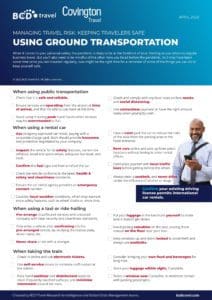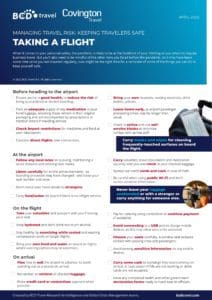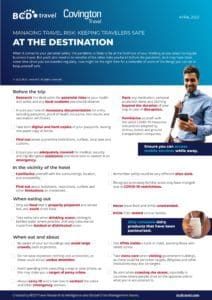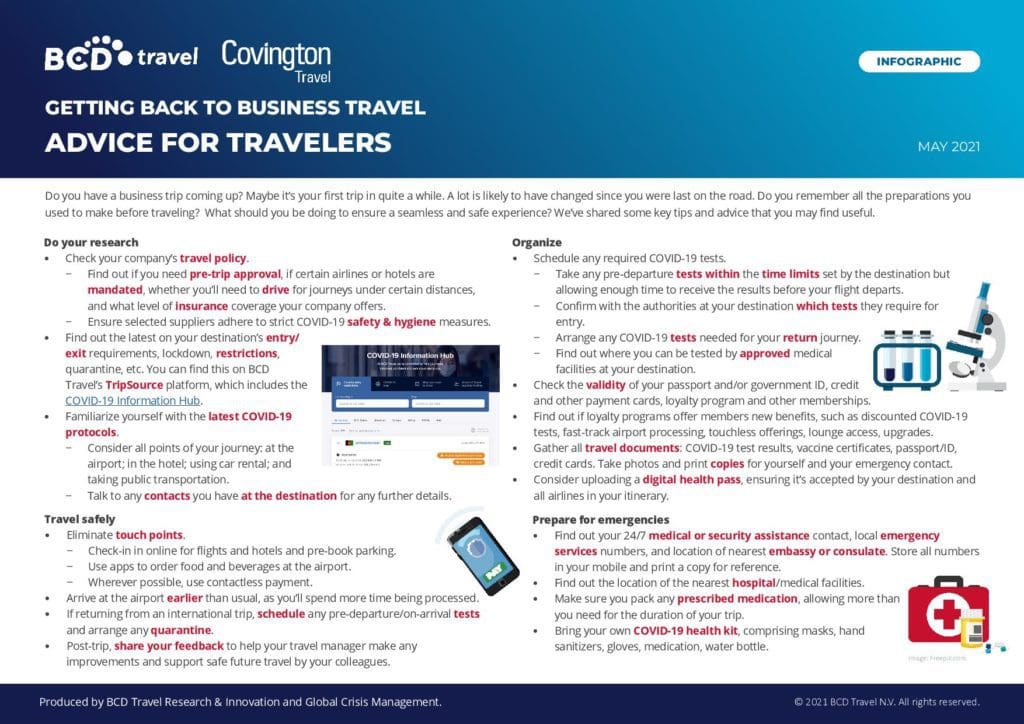Millions of airline reservations have been canceled since March 2020 due to the pandemic. Whether the flights were canceled by the airlines or travelers chose not to fly, the resulting unused tickets are potential losses to the purchaser. For frequent fliers and businesses with multiple travelers, the losses can mount quickly. But Covington clients have a secret weapon. We have designed a process and automation to help track unused tickets and alert travelers when they have an open credit or a refund.
Tracking Unused Tickets is Complex
When a widespread disruption event occurs, airlines often issue waivers (exceptions) to the standard exchange and refund rules. One of the difficulties of tracking unused tickets is that the airlines constantly change the waiver rules as the situation evolves. This is true not only for pandemic-related cancellations but also for weather issues and other travel disruptions. Additionally, each airline issues its own waivers so there is no one-size-fits-all policy.
Since the coronavirus pandemic has lasted longer than anyone initially expected, the airlines have extended waiver dates multiple times. Some go up to 24 months; some count from the date of purchase while others count from the original date of travel. An unused ticket that did not originally qualify for a refund or exchange might qualify later under a revised waiver. If the ticket was partially used, it may fall under a completely different set of rules.
“We are looking at each ticket over and over to update the expiration date as needed. Some tickets that expired are now valid again. Some tickets that were extended for a year have now been extended again. And of course, each airline does things just a little differently.”
Barry Weisiger, Director of Operations
Unused Tickets by the Numbers
Covington currently has about 5,300 unused tickets in our database. More than 10,000 tickets have been managed at least once since March 2020. Most were touched multiple times due to the ever-changing airline rules.
51 percent of those unused tickets (currently) expire in 2021 with the remainder expiring in 2022 or later.
Covington’s corporate accounts are holding an average of 30 unused tickets per company. At an average ticket price of $556, the potential loss to each business is $16,680 if those unused tickets go unrecovered.
“When business travel virtually ceased last Spring, an unprecedented number of airline reservations were canceled. Many of our corporate accounts that have never had more than a few canceled airline tickets on file suddenly found themselves with substantial funds tied up in unused tickets. Covington is committed to ensuring that each of our customers has the opportunity to use these funds for future travel by constantly updating expiration dates and waivers as they become available and applying these credits at every opportunity.”
Lisa Pitzer, Director, Business Travel Services
Benefits of Tracking
The advantages of tracking unused tickets are two-fold. The individual traveler gets more flexibility. Since most airlines waived change fees in late 2020 (average $200 per ticket) travelers can now book travel for two months out then cancel and rebook later if necessary. Knowing we’ll track the unused ticket and notify a traveler before it expires provides peace of mind. If you book directly with an airline, no one is looking out for you and they do not notify you of credits, refund options, waivers, or expirations.
From the perspective of the company, the obvious benefit is not leaving money on the table with the airlines. Plus, the company doesn’t have to put the onus of keeping up with the complex waivers and expiration dates on their employees. Covington clients entrust a professional – us – to do that job. Monthly reports of unused tickets are available to our corporate accounts, and individual ticket holders receive email notifications 120, 90, and 60 days prior to the ticket’s expiration date.
Not all Travel Management Companies have the resources to track unused tickets. Our process of tracking unused tickets utilizes both human interaction and automation. When one of our agents cancels a ticketed non-refundable reservation, they enter the ticket information directly into our proprietary database. We follow a similar process when a traveler cancels a booking through one of our online booking tools. Weekly, an automated process checks the status of every ticket that was scheduled to fly the prior week, so if any reservations were canceled by the airline, those unused tickets are automatically added. Finally, our Operations Team verifies the constantly changing waivers and initiates an automated process to update expiration dates when needed.
Paul Covington, CIO
If you have any questions about your outstanding unused tickets, contact a Covington travel agent for details.







Leave a Reply